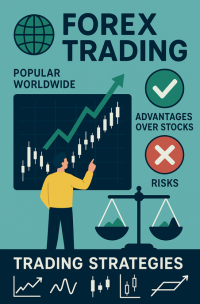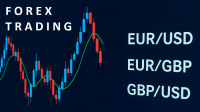In this article, we explore the pros and cons of each trading method and help you determine which is more suitable for beginners and experienced investors.
Stocks Trading
Pros:
- Ownership in Companies: Buying stocks means owning a portion of a company, giving investors voting rights and the potential to receive dividends.
- Long-Term Growth Potential: Stocks generally offer long-term appreciation, with historically strong returns over time.
- Regulated Market: Stock markets are highly regulated, ensuring transparency and protection for investors.
- Variety of Investment Strategies: Investors can engage in long-term investing, dividend investing, day trading, or swing trading.
- Lower Leverage Risks: Stocks have lower leverage compared to forex, reducing the potential for excessive losses.
Cons:
- Market Hours: Stock markets operate only during business hours, limiting trading opportunities.
- Higher Capital Requirement: Buying stocks can require significant capital, especially for blue-chip companies.
- Slower Execution: Stock trading involves brokers and exchanges, leading to potential delays in trade execution.
- Exposure to Company-Specific Risks: Poor earnings reports or management changes can negatively impact stock prices.
Risks:
- Market Volatility: Stock prices fluctuate due to economic, political, and sector-related events.
- Liquidity Issues: Some stocks have low trading volumes, making it difficult to buy or sell at desired prices.
- Company Risk: A company’s bankruptcy or financial troubles can lead to a complete loss of investment.
Forex Trading
Pros:
- 24-Hour Market: Forex operates 24/5, allowing traders to enter and exit trades at any time.
- High Liquidity: Forex is the largest financial market, ensuring easy order execution with minimal slippage.
- Lower Initial Investment: Traders can start with a small capital, as many brokers offer mini and micro accounts.
- Leverage Opportunities: Forex allows high leverage, which can amplify profits with small investments.
- Diversification: Traders can speculate on currency pairs from different economies, spreading risk.
Cons:
- High Volatility: Currency prices fluctuate rapidly, leading to unpredictable price movements.
- Complex Market Factors: Forex trading requires knowledge of global economies, central banks, and geopolitical events.
- Over-Leverage Risks: While leverage can boost profits, it also increases the potential for significant losses.
- No Ownership Benefits: Unlike stocks, forex traders do not own any asset or receive dividends.
- Less Regulation: Forex trading is decentralized, meaning less oversight compared to stock exchanges.
Risks:
- Leverage Risk: High leverage can lead to margin calls and significant losses.
- Market Manipulation: Some brokers engage in unethical practices, such as price manipulation or stop hunting.
- Interest Rate and Political Risks: Central bank policies and political instability can cause sudden currency fluctuations.
Which is Suitable for Beginners and Experienced Investors?
- Beginners: Stock trading is generally safer for beginners due to its regulated environment, lower leverage, and long-term growth potential. Dividend stocks and ETFs can be excellent starting points.
- Experienced Investors: Forex trading is better suited for traders with market experience and risk management skills. The need for technical and fundamental analysis makes it more challenging for newcomers.
Conclusion
Both stock and forex trading offer unique opportunities and risks. Stocks are ideal for those seeking long-term investment and ownership in companies, while forex is more suited for traders looking for short-term gains and market flexibility. Beginners should consider stocks first, while experienced traders may prefer forex for its fast-paced environment and leverage potential. Before entering any market, thorough research, risk management, and a well-defined strategy are essential to success.








